Home » Jazz Musicians » Jürgen Friedrich Discography
Infrablue
Jürgen Friedrich
Label: Two Rivers Records
Released: 2016
Duration: 00:55:56
Views: 412
Tracks
Infrablue; Star Shepherd; Armageddon; Make Me Humble; Reboot; Inward Expansion; Fly; Kleine None Grosse Reise; Love Rush
Personnel
Additional Personnel / Information
recorded, mixed and masterd by Christian Heck at Loft in Cologne.
Album Description
RELEASE NOTES Jazz can be so many different things. And that should suffice for platitudes. Jazz is always at its best, namely, when the question never arises about whether it is really jazz. This may be all the more impressive when a band brings along all the ingredients of an accepted jazz quartet and yet works quite differently, as in the case of the quartet Nautilus on their album Infrablue. Nautilus ЁC made up of saxophonist Hayden Chisholm, pianist JЁ№rgen Friedrich, bassist Robert Lucaciu and drummer Philipp Scholz. All four have made a name for themselves in various jazz contexts and reach a whole new collective sensibility in Nautilus. As they search for sound together, the music they make is incredibly soft and organic. It leaves the association of the hand-made behind and acts so self-evidently as if it were simply a part of nature. The care with which the band approaches not only their music, but also themselves is nearly unprecedented in contemporary jazz. To achieve this level, the four musicians did not need to make any agreements. Bassist Robert Lucaciu traces it back to the individual and collective spirit of all involved. Nothing, where one has to reflect. Ў°I think we are simply like that. Associations cannot be planned. But you can create the conditions that you completely lose yourself in a mood. And that is what we do.Ўұ The four musicians from Nautilus bring the toolbox of jazz along, but resist the temptation to show fully what they can do with it. Indeed, everything artisanal is left out. All they need to do is to set down this toolbox and just calmly wait for what happens. From this serenity comes sound, and that sound sets free a sense of gentle exuberance in the listenerЎҜs ear. At no moment does this have anything to do with the ambitions of the parties involved, but rather it is about an unusual humility before the power of the sound. Lucaciu describes this process ЁC to feel with the ears ЁC with the words: Ў°For me, it seems as if we feel for something in a dark room, very slowly, without giving in to t!he urge to turn on the light. It is about the intuitive ability to sense the room and then to move it.Ўұ Of course, the title Infrablue releases a number of associations. Blue, the color of jazz, the blues, blue notes, Kind of Blue. At night a color that one can feel rather than see. And as the infrared will disappear before the human eye in the spectrum of colors and is transformed into heat, so too the infrablue completely dissolves into a warming sound in the listener's ear. The neologism stems from JЁ№rgen Friedrich. It fit perfectly in the relationship of the band to their music, but as Lucaciu says, Ў°that was not a slogan whose meaning was clear to us from the outset. It is more a vessel w!hich we filled with content.Ўұ And that is how it feels when listening to this music, as if a color is transformed into a state. This state is made audible. It is perhaps a little similar to the light of a projector between the image source and screen. The beam contains all the information of the image, without displaying it itself. Rather, one sees elementary particles dancing in the beam, which have nothing to do with the image itself. Yet these do not in the least interfere with the projection, which arrives at the end.! The four band members organize the overall sound so symbiotically that one almost forgets these are different individuals with appropriately different backgrounds. The typical way jazz musicians intrinsically negotiate who plays what and when and how much of a solo here or there ЁC none of that is present here. At every point of time, the music is about the common share of the whole. Nevertheless, the four here have different things in their luggage, all of which they give to the music. Above all, Lucaciu points to the experience of making music. JЁ№rgen Friedrich and Hayden Chisholm are a bit older than Philipp Scholz and Robert Lucaciu. They resolve their different compositional approaches, however, collectively in improvisation. Ў°The differences do not matter,Ўұ says Lucaciu. Ў°This slow exploration and microscopic research in general are much more important t!han anything that divides us.Ўұ This slow exploration, as Lucaciu describes it, does not imply that the principles of composition and improvisation simply overlap, but that the musicians adjust to the needs of the particular songs with great care ЁC there we have the word again. This process, in turn, peaks in a very alert and conscious representation of what one finds there. The structures result from very small elements whose osmosis takes place quite differently every time. Walls or boundaries, which should be overcome, do not exist. Only permeable membranes that make merging and being p!ossible in every case. A very poetic worldview unfolds on Infrablue, one which is not tarnished by the fact that one of the songs is called Ў°Armageddon.Ўұ If doomsday really is as it is presented here, then we can safely seek refuge in Nautilus and look forward to it. REVIEWS At jazzahead!, Nautilus was the most striking formation at a German Jazz Expo filled with great talent. The quartet plays finely chiseled and well formulated ensemble music of almost perfect architecture and statics. They always make music that has an elasticity, intensity and narrative coherence you probably can only expect from a debut album when true masters are at work. Rarely do high musical standards and compositional complexity come along with such a sense of agility. Thorsten Hingst, Jazzpodium! Seldom does one hear such unique music so conscious of itself. Chisholm's sound seems to come from cool jazz, reminiscent of Lee Konitz, but he thinks further, pushing it into free and avant-garde contexts. He has found an ideal place in this band structure. Nothing here is loud or boastful; by contrast everything is balanced, wisely weighted and confident, without losing the spontaneity. Delicate and rich sound fantasies develop when Friedrich, as if lost in a dream, forms a dialog with Chisholm, when Scholz and Lucaciu sensitively prime the surface with nuances or occasionally take a step forward. This is not powerhouse jazz full of muscle gimmicks, but rather a closely intertwined project of a band. Completely equal, the members create both beautiful and unusual music. Being able to follow it on the CD is a fascinating experience. Ulrich Steinmetzger, Leipziger Volkszeitung A world between being awake and dreaming. Ruprecht Langer, Kreuzer Online
Album uploaded by Juergen Friedrich
Tags
PREVIOUS / NEXT
Comments
More Albums
Recordings: As Leader | As Sideperson
Ascend Flowers
Klaeng Records
2024
Semi Song
Nwog Records
2022
Infrablue
Two Rivers Records
2016
Reboot
Nwog Records
2015
Monosuite
Pirouet Records
2012
Pollock
Pirouet Records
2009

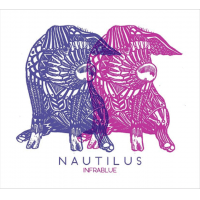


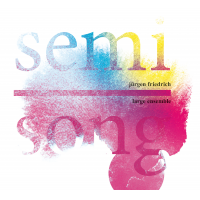
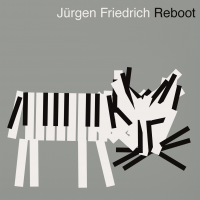
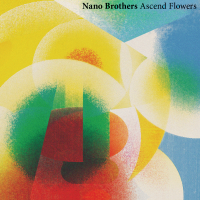
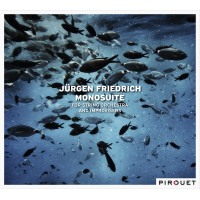




 Buy Now
Buy Now









